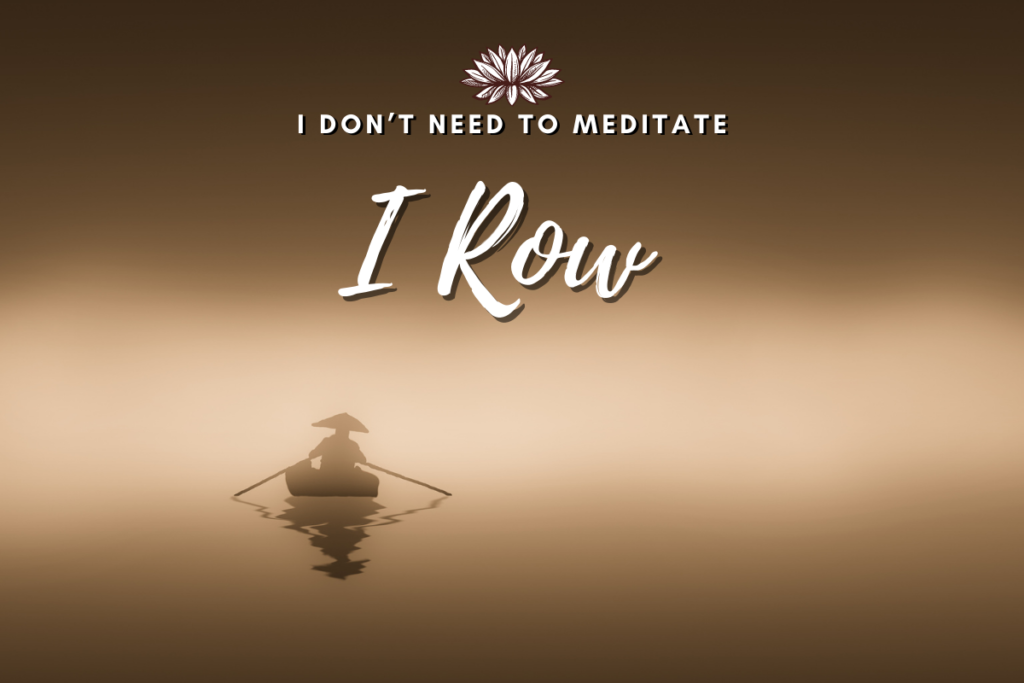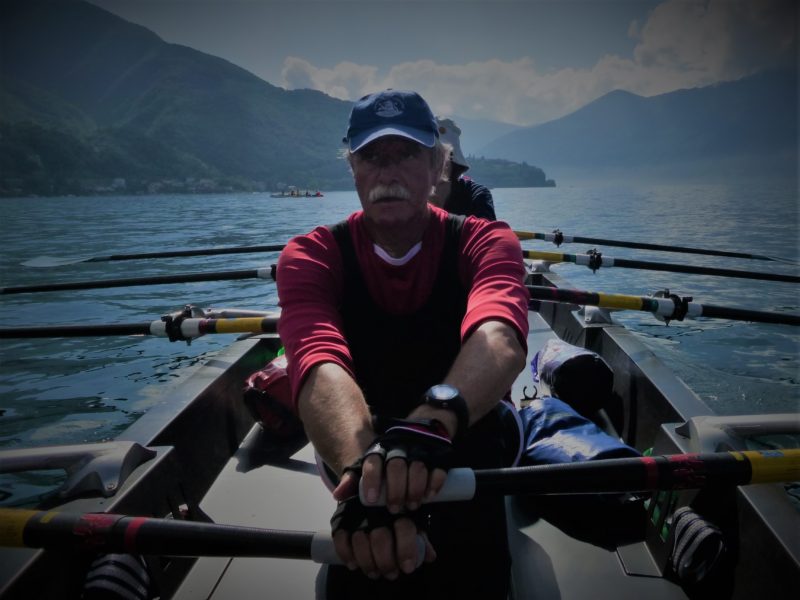
I Don’t Need to Meditate. I Row.

Whereby we learn how the four stages of rowing mimic the four stages of meditation.
Sometimes I think I should try yoga or meditation, but it just isn’t me. I know some of you swear by it, but I had a revelation the other day. I don’t need to meditate—or medicate, but that’s another story—no, I decided I don’t need to meditate because I row. Tada!
Seriously, here is my justification, ahem, explanation.
With meditation, you start by sitting upright on a chair or on the floor, hands on your thighs, taking a few deep breaths, and then closing your eyes.
When I row, I start out sitting upright in the scull, hands on oars, take a few deep breaths, then close my eyes. Wait, that’s not right. I keep my eyes open, least when I am in bow seat.
The second stage of meditation involves a mental body scan, from head to toe, whereby you notice the tension in your muscles, and what parts of you are comfortable or uncomfortable. You feel the floor or chair beneath you, and begin to focus on your breathing—in, out, in, out.
Same thing when I row. I do a mental body scan, from head to toe. How’s my head this morning? What’s that ringing in my ears? Oooh – tense in the shoulders today. Are my legs and back positioned where they are supposed to be? Once I’ve ruled out discomfort, and get going, I focus completely on my stroke, catch, drive, recovery, catch, drive, recovery. Now I am into the rhythm of the movement, my breathing, my stroke, my boat, my crew. I feel the water beneath me.
Thirdly, meditators become more aware of their breathing, the rise and fall of the chest, keeping it the same, counting each breath. As they do this, minds wander. This is one of the first things you learn how to deal with in meditation – let go of your thoughts. Let sounds come and go and pay attention to your breathing.
Am I right? For me, once things are moving along, I’m thinking, we are so light and fast; we are gliding like a knife through butter, sliding like a skater on the ice, the boat singing beneath us. Then, I start thinking about that damn report that needs to be finished, or a friend’s recent health issue, and, bam, I lose my rhythm. But, in rowing, I have learned to let those thoughts go or observe them from a distance and to focus, focus on the stroke, the swing of my body, the feel of the blades in the water. Zen!
Finally, when you stop meditating, you slowly start to notice the sounds around you. You pay attention to your body, your thoughts. You open your eyes and feel refreshed and ready to face the world.
With rowing, as I hit the final stretch back to the boathouse, I, too, start bringing myself out of my rowing reverie. I start to hear the sounds on the river or from the nearby street. I pull myself out of my amazing transcendent row and back to what’s going on around me. My eyes are open and I feel refreshed.
I don’t need to meditate. I row.
I agree totally, Ruth. It’s even more so when you’re training up for some competition. Also with rowing you build strength of muscles too, and thus more confidence in you physically ability and balance, plus having the added advantage of burning a few kilos too. You also develop a oneness with others with having to say much at all.
Lovely comments Aynslie, thank you very much.
I have been feeling this way about my rowing machine for quite some time. I focus on my breathing, returning to my counting when my mind wanders, which is what one does in meditation. My real, actual boat is a kayak, which is similar but different in that myfocus shifts more.to my environment and navigation. I love both. Thanks for this.article.